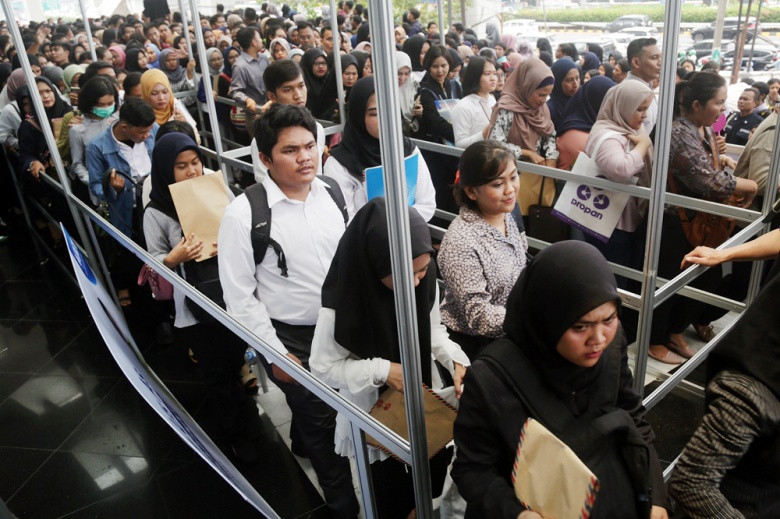JAKARTA -Talent development, not talent recruitment is the answer to meeting Indonesia’s talent shortage.
This however requires organisations to view talent or someone’s job performance not as an individual concept but as a concept that takes place in a context in presence of others.
Talent is today the world’s most valuable commodity. But it is becoming harder and harder for business leaders and CEOs to find the right talent to drive growth and profitability.
According to research by ManpowerGroup, the global talent shortage has doubled in the past decade. More than half of international businesses polled reported skills shortages while businesses in 36 out of 44 countries also reported facing greater difficulties in attracting talent than just five years ago.
The shifting demographics and the rise of millennials in the workforce has prompted HR managers and top corporate leaders to rethink their compensation packages and introduce flexible hours and even purpose when hiring fresh talent.
Indonesian corporations are no different as they are facing similar challenges. More than half of Indonesian employers are struggling to attract and hire the right candidates to help expand their businesses. This is despite the fact that Indonesia has a large labour pool of productive workers and that an estimated 2 million Indonesians enter the labour market each year.
The talent shortage is particularly acute in the fast-growing tech sector. According to the Ministry of Research and Technology, Indonesia faces a shortfall of 9 million tech workers up to 2030, which means the country needs 600,000 digital talents entering the labour force each year.
With a fast-growing middle class and ambitions to become a top 10 global economy by 2050, there is a huge need for the country to develop its talent base. The World Bank upgraded Indonesia to an “upper-middle income country” last year, noting that 52 million or one out of five Indonesians are middle class.
It is this middle class that will fuel sustained economic growth over the next three decades. However, corporations must start now to develop the talent pool so as to have the necessary human resources to capture the emerging opportunities.
The hunt for talent, says Burak Oc, Associate Professor of Organizational Behavior and Human Resources at the Melbourne Business School (MBS), is not limited to Indonesia. Born in Turkey and having lived and worked in many parts of the world, including Europe and Asia before moving to Australia, he has had a front row seat in understanding how talent behaves and develops within an organization.
“Corporations everywhere in the world are facing the same problem,” he notes. Having spent years researching and studying the topic, Dr. Oc says companies are focusing on the wrong solution as an answer to their problem.
“The issue is not recruiting and retaining talent but developing talent. The biggest mindset challenge for senior executives is that asking themselves whether they can develop their talent within their organisation.”
This means rather than looking to hire someone with a particular personality or skill set, companies should be looking to hire candidates who fit the job and the organisation well.
“The question for HR managers is whether they clearly understand what the position requires and then go find the individual who will provide the best job and social fit. Surely, there is a never a single definition of what talent would mean” Dr Oc said.
He added the tasks and performance of an individual is not based solely in skills of that individual but is based on performance behaviors that are affected by a series of factors. What drives the behavior in an organizational context? This is a critical question because a person does not work alone in an organization and his/her behaviors can be affected not only by who he/she is but also by others, job itself, and the way the organization is designed. Interestingly however, in 55% of organizations most performance rewards are still based on individual performance and only 28% of them consider contextual effects on individuals’ performance (Deloitte Human Capital Trends, 2019).
“Talent is not an individual concept, but can be a group concept,” said Dr. Oc. “A person rarely works alone so organisations need to think how to best support their employees so that they shine. No one position should be considered more important than the other. Every position is as meaningful as the other. Thus, the main question for organisations is how they can create a talent from every individual working for them.”
The best companies understand that their people are their only products. This certainly requires them to invest more time and effort to manage each individual’s performance but only 15% of companies believe that their existing performance management process is ‘worth the time put into it’ (Deloitte Human Capital Trends, 2019).

